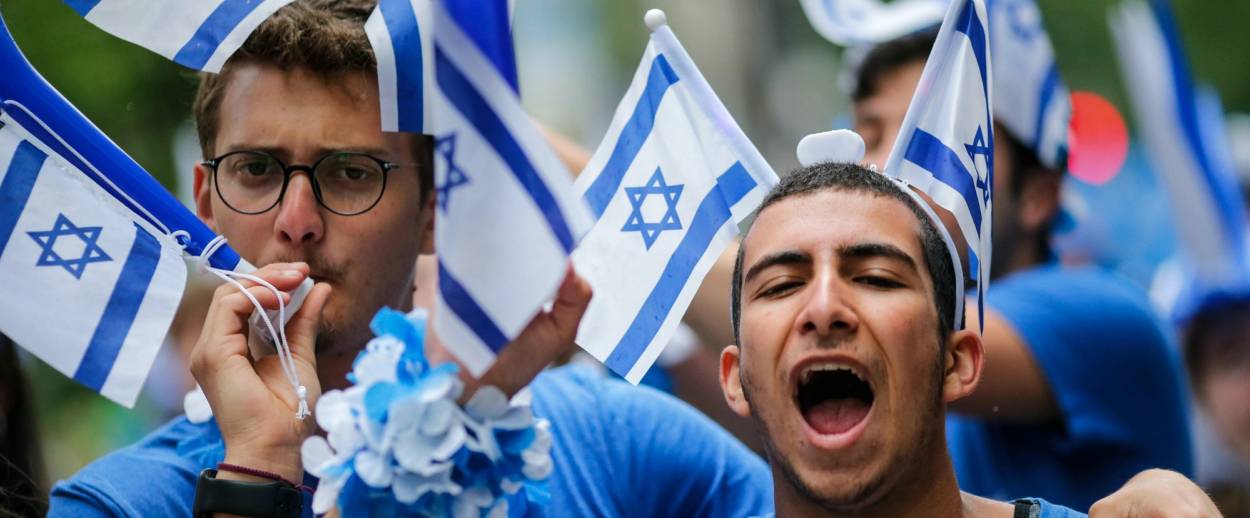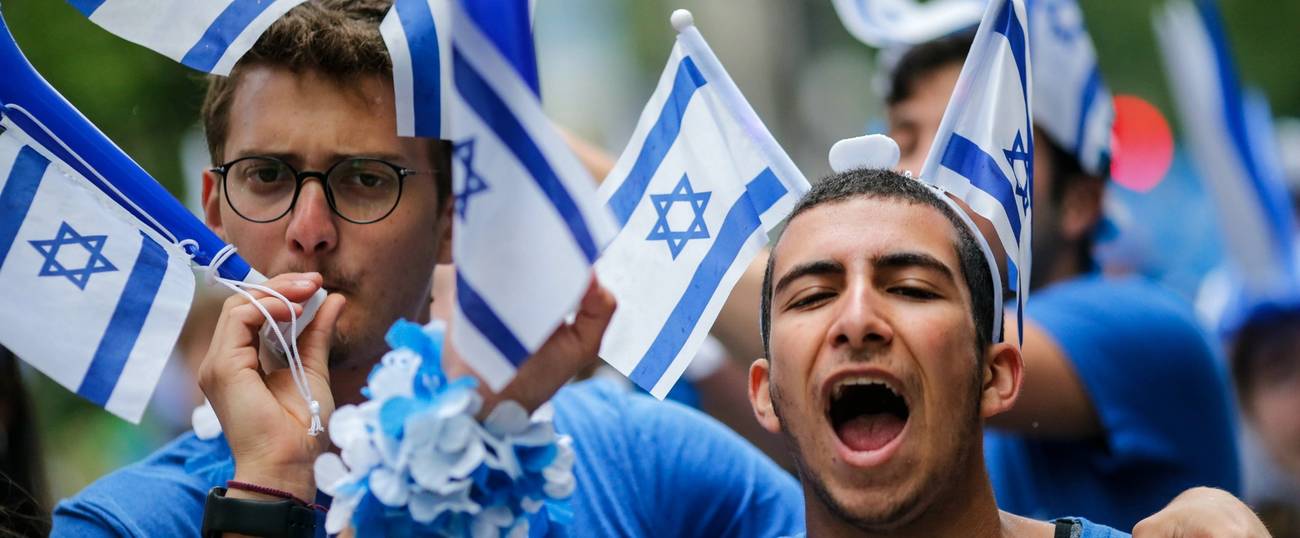As Tens of Thousands Celebrate Israel in New York, Many Wonder: Just What Does ‘Sababa’ Mean?
The parade’s official word is a good metaphor for the history of the Jewish State




Along with tens of thousands of other Jews and people who love them, I had the pleasure of marching yesterday up New York’s Fifth Avenue, celebrating Israel. It was inspiring to see so many people from so many diverse backgrounds show up and radiate so much joy and pride. But as marchers twirled their flags and beat their drums and waved to the crowds, many present asked one pressing question: What, exactly, does “Sababa” mean?
The word, chosen as the Celebrate Israel Parade’s official slogan, is Hebrew slang generally meaning “great” or “excellent.” But its etymological origins tell a story as intricate as the history of the state itself.
Brought to Israel by Iraqi Jewish immigrants, the Arabic word, according to the renowned Israeli linguist Avshalom Kor, originally meant something akin to “with yearning” or “with fierce love.” But the word’s original, dramatic meaning was soon blunted by the hardships of life in Israel and the temperament of a society that hadn’t much tolerance for the delicate niceties of romantic passion. “Sababa,” then, came to mean simply “good” or “alright,” the sort of thing you’d say, for example, if your boss informed you that everyone in the office had to work late today to finish that quarterly report.
Alongside Sababa’s rough landing in Israel, rumors started flourishing that ascribed the word a decidedly different back story. According to one urban legend popular in Israel in the Sixties, the word was coined by French engineers who spent time in the Negev helping Israel build its famed and mysterious nuclear reactor. Asked how they were doing, these Francophones would reply “ςa va, ςa va,” which the locals, unaware of the French expression, minted as “Sababa” and took to mean a general word of approval.
The story, however charming, has little evidence to support it. What does, however, is the transformation of the word sometime in the 1980s and 1990s. Originally an adjective (as in, “this Israel Day parade is Sababa”), the word soon morphed into an adverb, particularly thanks to another word of Iraqi origins, “Ba’asa,” which originally meant “loathing” but soon became a catchall term for anything that was disappointing or depressing. The Israeli mind was quick to pair these two similar-sounding words into a bit of local wisdom: Kach et ha’Ba’asa be’Sababa, which means “take your troubles Sababa-ly, in good spirits.” Walk around any army base on a Friday morning, and you’ll hear soldiers denied a weekend leave saying that a lot.
In recent years, however, Sababa is making a bit of a comeback. Once a senior citizen of Israeli slang, it’s having a bit of a renaissance thanks to a new generation discovering it and taking pleasure in its sound. Nechi Nech, for example, Israel’s greatest rapper, turned the word into a Reggae-infused blessing in one of his latest tracks, capturing the happiness and gratitude of so many of us celebrating Israel in Manhattan yesterday:
Liel Leibovitz is editor-at-large for Tablet Magazine and a host of its weekly culture podcast Unorthodox and daily Talmud podcast Take One. He is the editor of Zionism: The Tablet Guide.